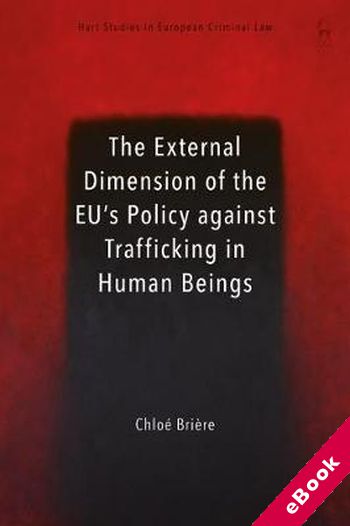
The device(s) you use to access the eBook content must be authorized with an Adobe ID before you download the product otherwise it will fail to register correctly.
For further information see https://www.wildy.com/ebook-formats
Once the order is confirmed an automated e-mail will be sent to you to allow you to download the eBook.
All eBooks are supplied firm sale and cannot be returned. If you believe there is a fault with your eBook then contact us on ebooks@wildy.com and we will help in resolving the issue. This does not affect your statutory rights.
This book seeks to determine to what extent the European Union's efforts to promote its approach to combating trafficking in human beings at the external level contribute to their adoption and implementation outside its borders.
It is divided in three parts. The first part aims to identify the legal context in which the European Union conducts its externalisation efforts. In the second part, the work done by other actors who are also involved in promoting anti-trafficking activities in the Western Balkans region is analysed, as it also participates to the development of counter-trafficking measures and promote cooperation. The third and final part aims to assess the impact on national legislation and policies of the joint efforts of the European Union and its partners to promote a comprehensive approach to combating trafficking in human beings.